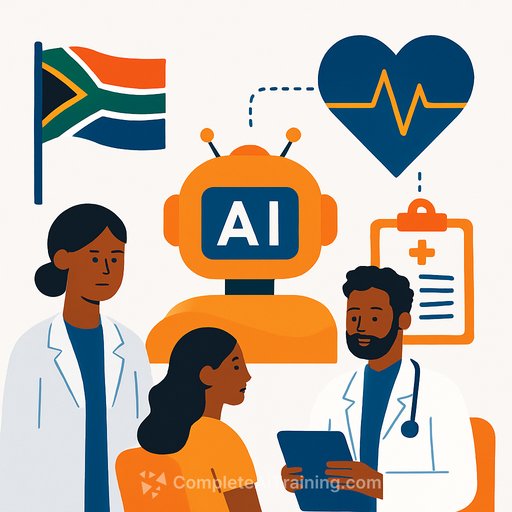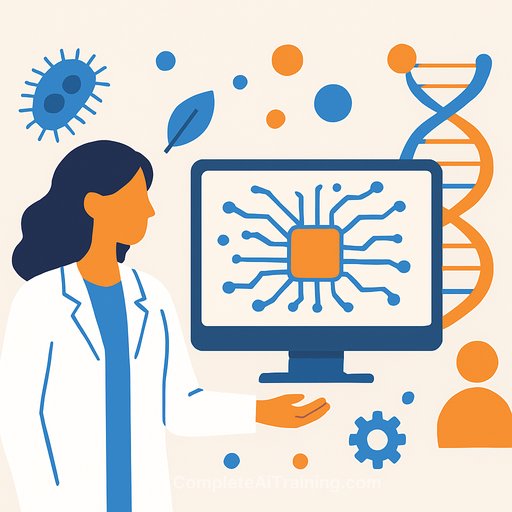South Africa Charts an Ethical Path for AI in Public Services
The Western Cape has introduced its first AI policy to balance innovation with human rights, aiming to expand access to healthcare and reduce inequality.
Artificial intelligence (AI) can significantly improve efficiency and service delivery in public healthcare, especially in resource-limited systems where demand exceeds capacity. South Africa has only 0.31 doctors per 1,000 people, which is far below the World Health Organization’s benchmark. However, using AI in healthcare—a human right where privacy and dignity are critical—carries risks. It is essential to balance innovation with safeguards that protect privacy, equity, and trust in digital tools.
To address these concerns, the Western Cape Government has approved its first provincial AI policy framework, establishing ethical guardrails for AI use in public services.
AI as a New Frontier for Healthcare Access
AI is transforming medicine by improving the quality and accessibility of care. But AI is a tool that requires human judgement, ethical safeguards, and a focus on patient well-being.
The Western Cape’s AI framework is built on five internationally recognized ethical principles:
- Beneficence: AI must serve the public good.
- Non-maleficence: It must avoid harm by protecting privacy and reducing bias.
- Human oversight: People, not machines, must remain in control.
- Fairness: Algorithms must never entrench or create discrimination.
- Transparency: Citizens deserve to know if AI is used, why, and who is accountable.
The Human Rights Imperative to Act
The ethical question extends beyond how AI is adopted to what happens if it is not used. Choosing to ignore AI tools that can save lives, reduce waiting times, and allocate scarce resources efficiently has real consequences. Avoiding AI risks deepening inequality and denying people the care they deserve.
In a stretched health system, AI helps scale solutions faster and at lower costs. Without active engagement, South Africa risks falling behind as other countries and private providers advance.
A Glimpse of What’s Possible: Khayelitsha Shows the Impact of AI
Khayelitsha, Cape Town’s largest township with about half a million residents, faces high rates of diabetes, which strains specialist eye-care services. Diabetic retinopathy, a leading cause of blindness, often develops without symptoms until vision loss occurs.
With AI-enabled retinal screening, staff at four primary healthcare clinics capture retinal images analyzed by an AI diagnostic tool. This tool assesses the likelihood and severity of diabetic retinopathy. Patients needing urgent care are booked directly for laser treatment at Khayelitsha District Hospital, ensuring timely intervention.
This approach prioritizes early detection, expands access, reduces inequality, and preserves human dignity by allowing patients with less urgent needs to receive care locally.
Opportunities: Rehumanising Healthcare and Building Efficiency
The Western Cape’s AI policy framework opens opportunities to:
- Free doctors and nurses from administrative tasks using tools like medical scribes, increasing time for patient care and improving the quality of human interactions.
- Reduce medical errors, with AI decision-support systems already showing over a 70% reduction in errors in East African pilot projects.
- Improve equity by enabling real-time language translation during consultations.
- Encourage innovation while delivering more efficient public services.
A Future We Must Choose
Khayelitsha’s example shows that thoughtful AI use supports healthcare professionals instead of replacing them. It ensures urgent cases receive prompt attention and that vulnerable residents are not left behind.
The Western Cape is committed to becoming a smart government that uses technology to serve people better. Integrity, transparency, and respect for human rights must guide AI use. Approached this way, AI can transform healthcare and ensure every resident, regardless of income or location, can access the care they need.
Your membership also unlocks:





